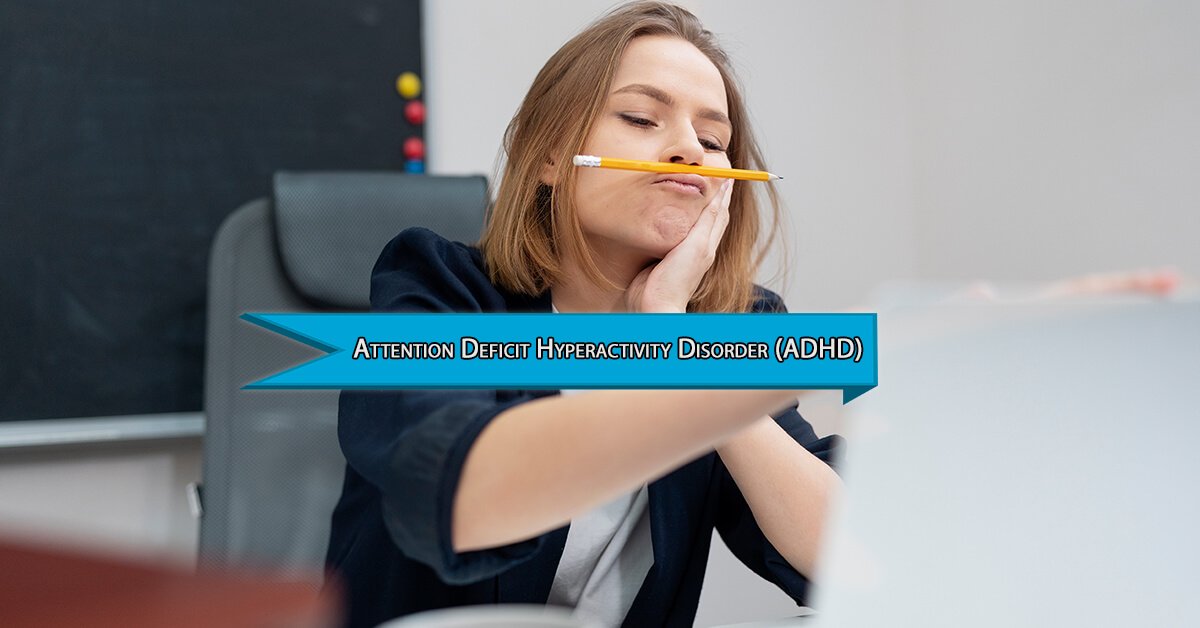Living with attention deficit hyperactivity disorder (ADHD) does not mean you are broken. It does not mean you are lazy, careless, dumb, or beyond hope of being organized. And it does not mean you are too much or not enough. It means your brain works differently, and that difference? Attention deficit hyperactivity disorder (ADHD) is a real, exhausting, raw, silent, spinning, relentless mental storm that can make you feel like you are living on the edge of everything all the time. And for those of us living with it, attention deficit hyperactivity disorder is not the textbook definition. It is waking up tired from a brain that never shuts up. Its missing deadlines you swore you would meet. It is the feeling of your chest clenching when you open your email. It is trying so hard to “just do the thing” and watching time warp into nothingness.
At PsychoAura, known as one of the Best Psychologists in Rawalpindi, we explain ADHD, the racing thoughts, and the deep guilt for forgetting what matters, and the wild, beautiful brilliance hiding underneath it all.
WHAT IS ATTENTION DEFICIT HYPERACTIVITY DISORDER (ADHD), REALLY?
ADHD is waking up and instantly being hit with a hundred thoughts, loud, tangled, and urgent. You try to grab one, but it slips out of your hand; they all slip. It is losing your keys, your phone, your train of thought, but never your heart. It is missing deadlines for things you genuinely care about, forgetting birthdays, burning the toast, and zoning out during conversations with people you love, then hating yourself for it. Managing ADHD lifestyle means learning to navigate these chaotic moments with patience, structure, and self-compassion, turning daily challenges into opportunities for growth and understanding.
It is crying because you are overwhelmed, and then laughing 30 seconds later because your brain found something shiny and your heart followed. You are told you have so much potential, but you wonder why it always feels just out of reach. It is guilt, deep frustration, but it is also spark, depth, and wild creativity. You see what others overlook, feel deeply, and dream endlessly, and through it all, you keep trying your best. And that matters more than anyone sees.
ATTENTION DEFICIT HYPERACTIVITY DISORDER (ADHD) IN REAL LIFE
If you have ever stared at your inbox for 45 minutes without replying to a single message, forgotten your coffee in the microwave for the third time today, or left the house without your phone, wallet, or even knowing where you were going, you have likely experienced the impact of ADHD firsthand. It is jumping from cleaning the kitchen to organizing your bookshelf to repainting the hallway in a single burst of energy. It is feeling like your brain is on fire with ideas but struggling to follow through. These moments capture what living with Attention Deficit Hyperactivity Disorder truly feels like, unpredictable, exhausting, yet deeply human.
SYMPTOMS OF ATTENTION DEFICIT HYPERACTIVITY DISORDER (ADHD)
CONSTANT MENTAL CLUTTER
TIME BLINDNESS
TROUBLE PRIORITIZING
HYPER FOCUS
EMOTIONAL SENSITIVITY
COPING STRATEGIES WITH ATTENTION DEFICIT HYPERACTIVITY DISORDER (ADHD)
The following are the coping strategies with Attention Deficit Hyperactivity Disorder (ADHD):
1. USE EXTERNAL MEMORY
2. BREAK EVERYTHING INTO TINY TASKS
Cleaning the apartment can feel overwhelming, but small steps make a big difference. Put the dishes in the dishwasher, fold three shirts, and throw out expired items from the fridge. When you start with one simple task, it becomes easier to keep going. These small wins are powerful ways to stay organized with ADHD and create a sense of calm in your daily routine.
3. PRACTICE MINDFULNESS
4. EXERCISE
5. GUARD YOUR SLEEP
6. TALK IT OUT
LET’S TALK ABOUT THE GIFT
People with ADHD often have:
1. Creative brain
2. Intense passion
3. Adaptability
4. Empathy and depth
Conclusion
You are a human being with a unique Psychoaura, a mental vibe wired for creativity, energy, and complexity. Attention-deficit hyperactivity disorder can be messy. But it is also yours, and when you meet it with love, not shame, the game changes. Take the diagnosis if it fits. Use the tools. Try the medication, but consult your doctor first. Build the system and, for the love of all things good, celebrate your wins, no matter how small.




